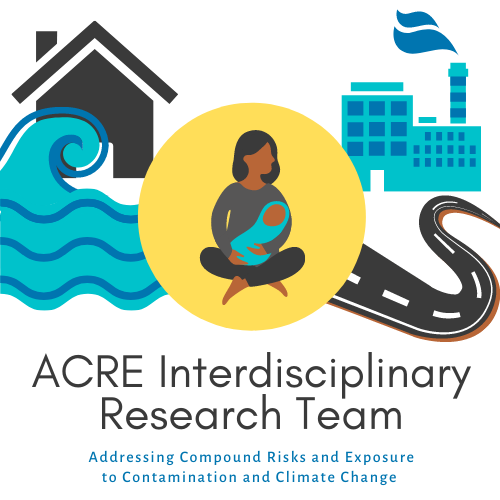Teaming for Interdisciplinary Research Pre-Seed Program
Building resilience to compound environmental risks in disenfranchised communities

Building resilience to compound environmental risks in disenfranchised communities

Environmental risks, such as the effects of contamination from hazardous waste sites and climate change, disproportionately affect underserved and priority communities in our nation. Glynn County in coastal Georgia contains 90 active and archived hazardous waste and materials sites, all of which are vulnerable to at least one climate change impact (e.g., flooding, storm surge, sea level rise, fire) that could lead to toxic releases. These climate-vulnerable hazardous sites are clustered in and around lower-income, non-white communities in Brunswick, GA.
Our team will develop an interdisciplinary research agenda to (1) quantify the compound environmental risks faced disproportionately by residents in Brunswick due to standing environmental injustices and to (2) develop strategies to build resilience. The assembled team is well-equipped to address these questions. We combine expertise in assessing community exposure to environmental risks (Bilskie, Smith), mapping those risks (Madden), quantifying economic and social impacts (Ferreira, Frimpong), examining community preferences and risk perceptions (Andrews, Ferreira, Gambill), and developing strategies with the community to mitigate risks (Andrews, Gambill, Brown).
From the outset, we are engaging current and future community leaders (through the local Environmental Justice Advisory Board and Community First Planning Commission) and the affected communities at large in research and outreach. This is necessary to coproduce indicators and statistical evidence that will truly increase community awareness of environmental risks, correct potential existing misconceptions of such risks, and build local capacity to counter vulnerability and enhance resilience. At this time, we have interacted with community leaders in multiple occasions through Zoom, but we need to meet face-to-face to continue building an incipient partnership, and to prioritize and coordinate research efforts.
The proposal seeks funding to facilitate the coordination and organization of an interdisciplinary research agenda as well as enable an in-person 1.5-day workshop in Brunswick, GA where the team can interact with, listen to, and gain the trust of the local community. This support might include travel, workshop expenses and related resources. Brunswick epitomizes the triple burden of environmental contamination, climate change risks, and economic and racial injustice. This initial investment and the knowledge it will generate will position us well to seek external funding from EPA (Environmental Justice Grants), NIH (Superfund Research Program) and private organizations such as the Robert Wood Johnson Foundation or the Burroughs Wellcome Fund (Climate Change and Human Health Seed Grant).
Team Lead
Susana Ferreira
Agricultural & Applied Economics
sferreir@uga.edu
Team Members
Jill Gambill
Marine Extension and Georgia Sea Grant
Matt Bilskie
College of Engineering
Marguerite Madden
Department of Geography
Eugene Frimpong
Marine Extension and Georgia Sea Grant
Katy Smith
Marine Extension and Georgia Sea Grant
Jessica Brown
Marine Extension and Georgia Sea Grant
Kimberly Andrews
Marine Extension and Georgia Sea Grant
